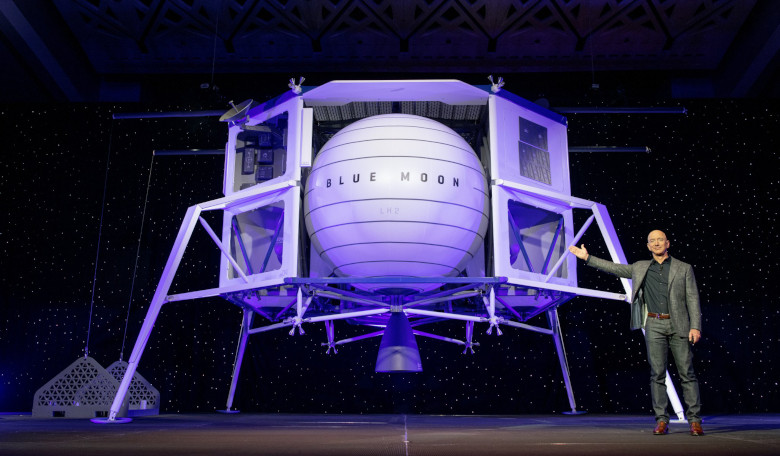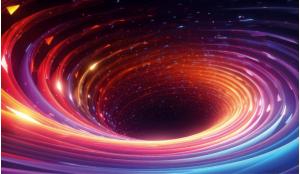When Blue Origin posted a photograph on Twitter a couple of weeks ago of the ship that British explorer Ernest Shackleton used on his famously difficult Antarctic expedition, and with a date reading “5.9.19” curiously written underneath, social media was rife with rumours that Jeff Bezos was about to unveil plans of a mission to the Moon. And yesterday, on the 9 May, he did just that.
At a press conference in Washington, D.C., Bezos, who invests more than $1 billion in Blue Origin each year through sales of his Amazon shares, unveiled a mock-up of Blue Origin’s aptly named Blue Moon lunar lander at this small invite-only event. “It’s time to go back to the moon, this time to stay,” Bezos said, as he stood in front of the huge four-footed, hydrogen fuelled vehicle.
The Shackleton reference in Blue Origin’s earlier tweet is tied to the lander’s power source – liquid hydrogen – and the mission’s intended destination; Shackleton crater. This important impact crater lies at the Moon’s south pole and is of interest to many with plans to touch down on our nearest celestial neighbour due to its potential resources.
Not only does the crater receive almost perpetual sunlight, making it a useful locale in which to top-up solar powered cells, the lunar south pole is also believed to contain large deposits of water ice. Depending on its availability, the water-ice could conceivably be broken down into its constituent elements—hydrogen and oxygen—and reprocessed as rocket fuel.
Bezos has not been shy in endorsing more human activity in space, due to his concerns over how Earth will cope with the demands of a growing population. He has said before and again at this event of his desire to capitalise on a potentially unlimited supply of energy from solar power – something that could be achieved on the scales necessary if humanity moves beyond the planet we currently call home. For Bezos, it would appear the Moon is the first step in transforming humans into a major space-faring species. “The Earth is no longer big,” Bezos told the audience of schoolchildren, space industry representatives, staff and reporters. “Humanity is big.”
The billionaire also elucidated to the fact that Blue Origin would be able to meet the deadline recently imposed by US vice president Mike Pence for their goal of returning American astronauts to the Moon as soon as 2024, ‘because we started three years ago’, Bezos said.
Indeed, last October, the company quietly signed an agreement with the US Space agency to collaborate on the development of medium to large commercial lander systems for the lunar surface. As part of the deal, NASA agreed to share its expertise, along with information on potential lunar landing sites in exchange for a payment of $50,000.
Although a date for an up and coming mission wasn’t set, Bezos said that the engine for the lander will be tested this summer. Once readied for action, the versatile lander will be capable of deploying an ascent vehicle and landing multiple metric tons of payloads on the lunar surface.
Aiding in the mission will be the companies new BE-7 engine, which was also unveiled at the ceremony by Bezos. The BE-7, made mostly from additive manufacturing, is a high-performance, dual-expander cycle engine capable of generating 40 kN (10,000 lbf) of thrust. It will be used to enable the lander’s oxygen/hydrogen fuel cell power system and to control Blue Moon’s descent to the surface.











